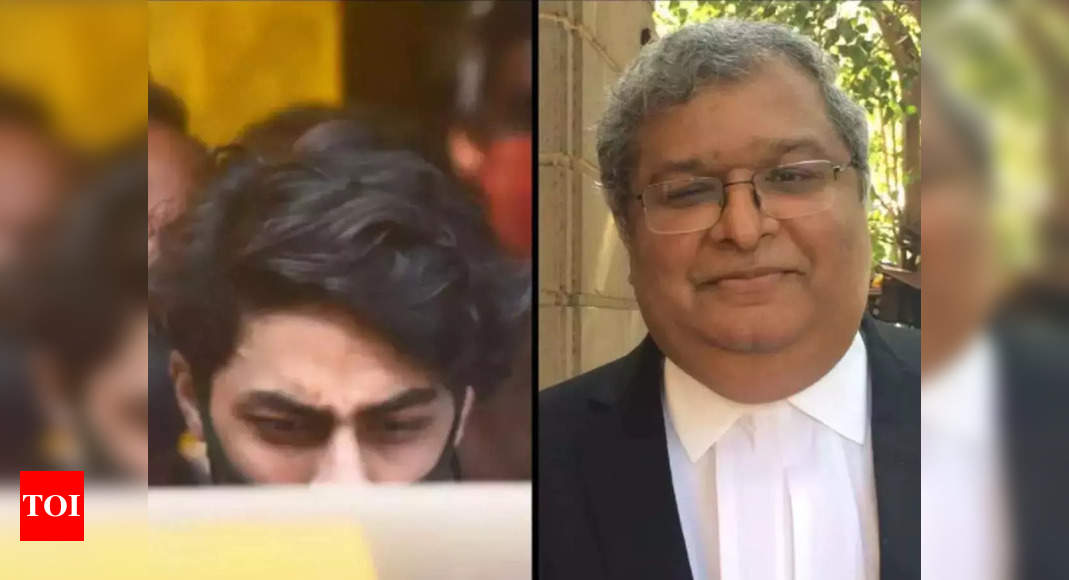Speaking about the way forward for Aryan Khan, after having secured bail from the Bombay High Court, Desai says, “Nothing will happen immediately now; the legal process will take its course. Aryan is home and he will probably relax and take it easy. Nine more people from the same case have procured bail after Aryan. So now, a total of 14 people have got bail in this case. Six people are still in custody.”
Desai reveals that the rest of the people might have to wait longer. He explains, “Because now, the sessions court has gone into a vacation. They might have to wait for another week. If the rest don’t get bail, the NCB, under the NDPS Act, will have to start filing chargesheets in the next few months.”
With respect to Aryan, he says, “Till then, we will comply to the bail conditions and this whole issue will continue, calm down, and cool off.”
He further explains that once all the complaints are filed by the agency, the next step of the legal process will begin. He adds, “Depending on what are the allegations in the complaint and what evidence is provided. Right now, there is a bit of a hiatus that has set in. Aryan can look forward to some peace.”
When asked how the bail conditions will affect Aryan’s daily life, Desai says, “His life changes only with the fact that Aryan will have to go to the NCB office every Friday between 11 am to 2 pm and mark his presence.”
One of the main points that Aryan Khan’s team of lawyers made in court was that Aryan should get bail because even if you charge him for consumption, which he did not really do, he would still be eligible for bail under the maxims of the law. Desai explains, “The Legislature wanted to discourage people from consuming, but they didn’t want it to be too strict, which is why the maximum punishment for consumption was set at one year. From 2001 to 2021 there has been further evolution in the law and its interpretation. In 2020, in the UN, where India is a signatory, there was a change in the way the world ought to deal with Cannabis, and India being a signatory had agreed to the global stand that cannabis should not be treated as a dangerous drug. But then, local laws are another question. Every country is free to decide how it wants to deal with Cannabis consumption.”
He goes on to explain, “As reported by some publications, just one week ago, the Ministry of Social Justice wrote to the Revenue Ministry to consider the decriminalisation of the offence of consumption of cannabis. When you look at the process of evolution between from 2001 and 2021, the law has tried to reform. Today we are reaching a stage when even the government is talking about decriminalising this process. This process is getting reformative.”
He states that while the government is still considering the change, how we implement the law is crucial and it is important to practice the law with a reformative approach. He adds, “That is what we argued in front of the court. It’s not like all people with small quantity of possession must walk free. There will be cases when even peddlers will be caught with small quantities in possession. Even smugglers could get caught with small quantities. So those people must not get the benefit of the reformative quality of the law, but the consumers must get that benefit. And if you look at the last 10-15 years, the courts have easily granted bail in most cases of consumption and small quantity possession.”
Engaging Desai on the point that the NDPS Act allows addicts to opt for rehab and avoid prosecution, ETimes pointed out that they had argued on similar points in court while defending Aryan. Desai says, “Some people who are addicts, get into rehab and get relief from prosecution. You must also realize this important social reality that all youngsters are not addicts. They may just be smoking once in a blue moon. They have the ability to control themselves and say I am not going to smoke this every day. An addict functions on cravings and there’s a clear difference between the two.”
He further says, “In Aryan’s case, nothing was found on him. All these allegations were being made in the air. That’s something I argued in court as well, that section 27 of the NDPS act is applicable when the person is actually caught consuming. If you are intending to commit a crime, that’s not a crime under law and therefore he should have never been arrested under Sec 27.”
Desai is critical of the allegations that were levelled against Aryan and Arbaaz in court. He says, “The extent to which they’ve gone to say there’s been international drug trafficking is completely false. I haven’t met the boy so I can’t make any claims. But, during the court hearings, so many things were thrown at us and it was not fair.”
When ETimes asks Desai if he feels that at any point the law was misused against Aryan and Arbaaz, he says, “One of the propositions that I canvassed in court was that there was no need to arrest. This is written in Supreme Court judgments and the Legislature made a provision in S. 41A that was meant to establish this thought. The Supreme Court has also observed and that any resistance to this provision would be held in contempt. Prima facie the main question was that why did you not give the accused a notice under provision 41A. If the NCB thought it was a case of possession and consumption, issue the accused a notice under 41A and ask pertinent questions like ‘what did you consume?’ and ‘Where did you get it from?’ So that they could know the suppliers and then go after them. They could have done that, it would have been as per law. But there is no mandatory section to arrest, it’s purely discretionary. The question is, when to exercise the power, in what circumstance to exercise the power. That is the real issue which is affecting so many cases, but what is to be done?”
There was also an opinion floating around that the reason Aryan and Arbaaz found it hard to secure bail was that their cases were interlinked and charges filed by the NCB were for a combined group of accused. Desai explains, “Their cases are interlinked because both those friends were traveling together. Our contention was that all other seizures and recoveries made by the NCB in this case from other individuals were also dumped on us. In the remand application, it was wrongly suggested that the combined quantity of contraband was relevant to us. If you look at the panchnama, only 6 grams of charas was recovered from Arbaaz, but then a total of 21 grams of charas, 13 grams of cocaine, 5 grams of MD, and 22 Ecstasy pills were also attributed to our case. Aryan and Arbaaz, don’t even know who the people from whom these substances were recovered. There is no connection between the accused people.” Conspiracy was wrongly invoked.







More News
Anushka Sharma’s Many Moods in the Stands Captured by Netizens | – Times of India
Jungkook’s heartfelt words: A source of warmth and inspiration for ARMYs
Heeramandi: Netizens Point Out Errors in Sanjay Leela Bhansali’s series Heeramandi The Diamond Bazaar | – Times of India